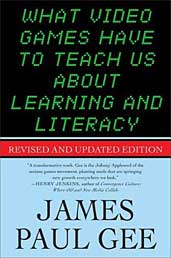Posted by TwinHits | 15 Comments
United We Stand: The Machiavellian Guild Leader
 United We Stand is an Ask A Jedi series focusing on guilds, groups, and other communities in Star Wars: The Old Republic. By examining the communities that we form, we can create a stronger game for ourselves, build relationships that will last a lifetime, and perhaps even change the world itself.
United We Stand is an Ask A Jedi series focusing on guilds, groups, and other communities in Star Wars: The Old Republic. By examining the communities that we form, we can create a stronger game for ourselves, build relationships that will last a lifetime, and perhaps even change the world itself.
A while back, I read “The Prince” by political philosopher Niccolò Machiavelli. The idea was that it would have cool stuff that guild officers could apply to leadership and that I could write about. This turned out to be kind of true. In the actual act and organization of leadership, what Machiavelli has to say isn’t particularly applicable. We’re not hiring mercenaries, doling out land and fortresses to loyal princes, or deciding whether or not to raze, puppet, or annex cities (Oh, hey there, Civilization 5!). Although, it makes me wonder if in an older MMO like Ultima Online if this kind of advice would be more applicable.
I put the project aside, until I picked up a copy of “World of Warcraft and Philosophy: Rise of the Philosopher King.” You may have seen this book or maybe its companions like “The Legend of Zelda and Philosophy: I Link Therefore I Am” or ‘Halo and Philosophy: Intellect Evolved“. At first, these seem pretty dumb, but it was actually really awesome. It is a collection of papers and articles about philosophy that all use World of Warcraft as an example. For example, there is one about how the World of Warcraft economy represents the capitalism that Adam Smith described in “The Wealth of Nations“. Another describes the philosophical idea of determinism through the example of a player controlling a character and that character not understanding what it is that causes him to move. In particular, there was an article called “The Machiavellian Guild Leader” by Moses Wolfenstein that discussed how guild leaders in World of Warcraft use some of the political leadership principles that Machiavelli talks about.
Wolfenstein points to the infamous Onyxia Wipe Animation as an example, in which the Boulderfist guild Wipe Club is trying to down Onyxia and after a particularly close loss the raid leader Dives began to yell and scream promising to punish them all with “50 DKP minus!”. Wolfenstein claims that Dives is employing the Machiavellian principle that it is better to be feared than loved or hated. Machiavelli says that if you want to rule a country and remain the ruler, it is much better to be feared because when you are kind and generous people will appreciate it. If you are loved, the people will not appreciate your generosity because it is what they expect of you and when you need to be harsh they will hate you for it. When you are hated, you cannot rule because you will be too worried about being overthrown. “It is better to be miserly than generous for when you fail to be generous where expected you will be hated, but if you are miserly than you will be unexpected.”
Read MorePosted by TwinHits | 5 Comments
United We Stand: Drop Everything and Start It All Over, Remember More Than You’d Like to Forget
 Don’t quit. That’s the thesis of this post. If you are a guild officer, don’t do it, don’t give up. Don’t quit your guild, don’t ask to step down, and absolutely do not just disappear. Burnout has always been a danger for leaders everywhere, not just in gaming guilds but in every volunteer leadership position. I know that you might feel tired of the responsibilities, but honestly: just keep playing, just keep logging on. You’ll thank me later.
Don’t quit. That’s the thesis of this post. If you are a guild officer, don’t do it, don’t give up. Don’t quit your guild, don’t ask to step down, and absolutely do not just disappear. Burnout has always been a danger for leaders everywhere, not just in gaming guilds but in every volunteer leadership position. I know that you might feel tired of the responsibilities, but honestly: just keep playing, just keep logging on. You’ll thank me later.
I am an optimist, I believe in the best in everything. Every problem has a bright side, and no matter how bad things might get one should always remember all the good things that one takes for granted. I will always remember the smiling faces around me as we downed our first boss, cleared our first operation, or got our first piece of Rakata. I remember the energy that I felt at every new member and every small achievement. I remind myself of all the time and energy that we put into building a great guild and no matter how tired I might get, I’ll always rather have this than nothing at all. I just keep playing, and I just keep logging in.
Read MorePosted by TwinHits | 3 Comments
United We Stand: What’s In A Name?
United We Stand is an Ask A Jedi series focusing on guilds, groups, and other communities in Star Wars: The Old Republic. By examining the communities that we form, we can create a stronger game for ourselves, build relationships that will last a lifetime, and perhaps even change the world itself.
My name is technically not TwinHits. For unless one has very strange parents, one would expect a more normal name for a person. However this is the internet, and here on the internet we name ourselves.
Not so much in the tribal sense of the word, there is no ceremony where the elders gather around the youth about to venture onto the web for the first time, lay their hands on his shoulders and declare him ‘Starman2000’. Instead, naming is a very personal act. It’s what comes to mind when you stare at the required and empty name field when you are rolling a new character, sign up on a new website, or even name your computer so it’s recognizable to you on your home network.
These names define the cyber-citizen because it is the name that divides the online person and the offline person. With a name comes a personality, completely separate from your real offline identity. These personalities can take on a life of their own making actions of that name entirely different from the actions of your real name, completely unconnected to each other. Separate identities lets one become separate people, different personas for different situations.
Read MorePosted by TwinHits | 1 Comment
United We Stand: Stand Back, We’re Learning
 Dear Parents, don’t worry. Your kids are going to be alright even if they are spending a ton of time playing Star Wars: The Old Republic. It’s not antisocial, it’s not useless, and it’s not a waste of time. It’s learning, and according to James Paul Gee’s book What Video Games Have to Teach Us About Learning and Literacy, they are doing a better job than our schools are. “They operate with—that is, they build into their designs and encourage—good principles of learning, principles that are better than those in many of our skill-and-drill, back-to-basics, test-them-until-they-drop schools.” (Gee, 205)
Dear Parents, don’t worry. Your kids are going to be alright even if they are spending a ton of time playing Star Wars: The Old Republic. It’s not antisocial, it’s not useless, and it’s not a waste of time. It’s learning, and according to James Paul Gee’s book What Video Games Have to Teach Us About Learning and Literacy, they are doing a better job than our schools are. “They operate with—that is, they build into their designs and encourage—good principles of learning, principles that are better than those in many of our skill-and-drill, back-to-basics, test-them-until-they-drop schools.” (Gee, 205)

Check out that handsome book cover.
And he is absolutely right. In this book, he highlights thirty-six learning principles identified by learning and literacy studies and talks about how they are used in modern game design. An excellent example that he uses is the pattern teaching strategy that first person shooters use. They teach you have to move, how to shoot, and how to not die then they throw enemies at you. When fighting, you develop strategies and learn tactics that are effective against your enemies. Then, as the game progresses to more difficult enemies, the game forces you to use everything you have learned in new and different ways. Then, as the final boss nears, the game tears these strategies’ away from you and makes you look for solutions outside of the box, drawing on all the experiences you have had throughout the game.
Read MorePosted by TwinHits | 3 Comments
United We Stand: Feels Like Purpose
 United We Stand is an Ask A Jedi series focusing on guilds, groups, and other communities in Star Wars: The Old Republic. By examining the communities that we form, we can create a stronger game for ourselves, build relationships that will last a lifetime, and perhaps even change the world itself.
United We Stand is an Ask A Jedi series focusing on guilds, groups, and other communities in Star Wars: The Old Republic. By examining the communities that we form, we can create a stronger game for ourselves, build relationships that will last a lifetime, and perhaps even change the world itself.
Quick Note: 5/5 Karagga’s Palace downed! Special shout out to the creator and moderators of www.dreshdaecnatina.com.
I think that one of the most common complaints about MMO’s is that at a certain point they just feel like you are playing a job. One of my roommates, Walters, said this a lot towards the end of his raid leading career in World of Warcraft. I don’t blame him at all, this feeling is common among guild leaders, officers, and raid leaders. We like to refer to it as ‘burnout’, but I think that it is more than that. I think that the fact that our games can take on this flavor is a great statement both about Star Wars: The Old Republic and about the effects they can have on us and our society.
What about MMO’s feels like a job? Management, responsibility, having to tell people they can’t do whatever they want because their gear isn’t up to par, etc. The list goes on. Getting sixteen people online at the same time at the same place with a shared purpose isn’t easy, and it takes quite a bit of skill to do well. All the /tells, officer chat, forum moderation, and drama means less time spent running Koan Under Siege for that Columi headpiece (I’m not bitter) or PvPing to get that Battlemaster title isn’t necessarily fun. In fact, I would probably not get much resistance if I said that’s not nearly as fun as Huttball.
Read More


